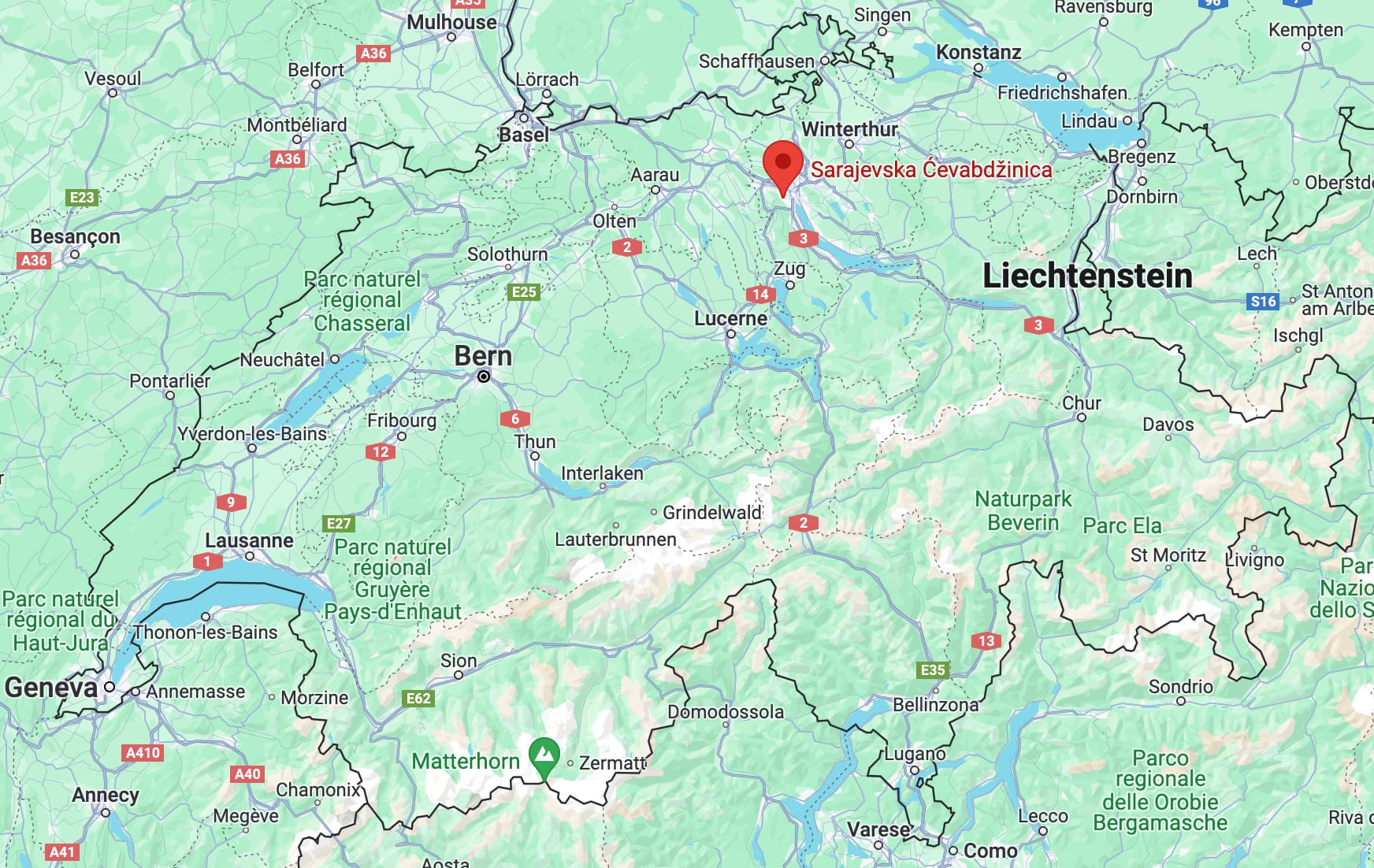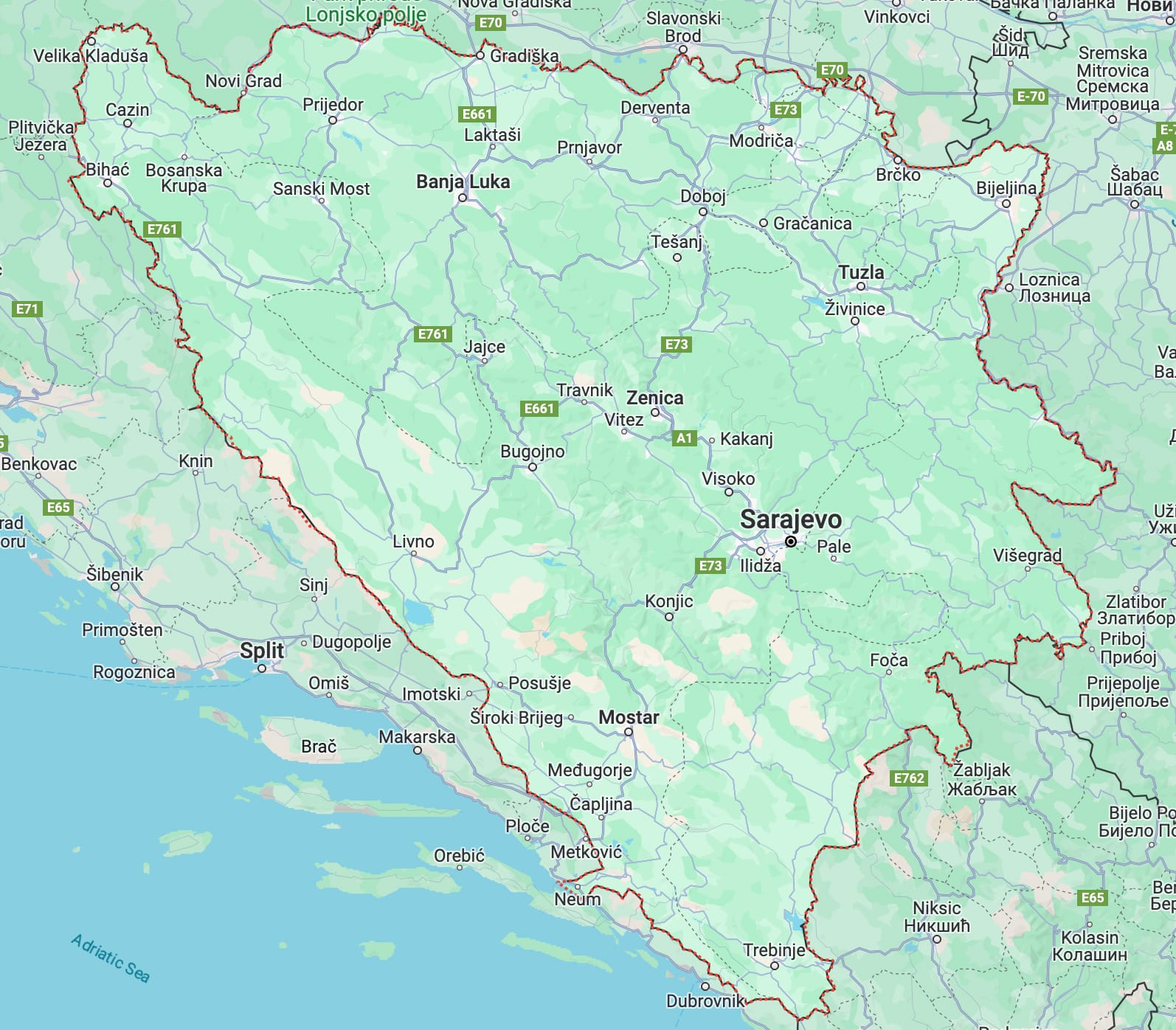Where to eat BOSNIA AND HERZEGOVINA 🇧🇦 Zürich: Sarajevska Ćevabdžinica
Sarajevska Ćevabdžinica is an old Yugo joint with a most Bohemian owner who doubled as our server for the night... As we ordered our Sarajevsko beer, we were instead offered Serbian and Croatian beer. Of the language... he instead offered “nashi” or “ours.” Yes, there once was a country.

Sarajevska Ćevabdžinica
Freilagerstrasse 1, Zürich

Published February 6, 2024 · by Amanda Rivkin
What we ordered: For two people, one šopska salad, one order of ćevapi and an order of sudzuk. To drink, one bottle of Serbian Jelen beer (33 cl) and a large can of Croatian Karlovačko beer (50 cl).
Cost: 46 CHF / €49 / $53
Sarajevska Ćevabdžinica is an old Yugo joint with a most Bohemian owner who doubled as our server for the night. With a ponytail and a penchant for thinking not in terms of the contemporary border lines that divide the Balkans after the conflicts of the 1990s, but rather instead of the country that once was. He made us feel the tug of a time past.
Part of the owner’s family originates from Sarajevo but ended up in Prizren, in present day Kosovo. The family considers itself Gorani, a Serbian speaking Muslim minority found in the south of that country. They arrived there by way of his grandfather’s military service prior to moving to Switzerland. Yugo sensibility is baked into their core identity rather than a fetish or function of mere nostalgia. There once was a country.
As we ordered our Sarajevsko beer, we were instead offered Serbian and Croatian beer. Of the language, whether Serbian or Croatian or Serbo-Croat, he instead offered “nashi” or “ours.” Yes, there once was a country.

The food was fresh and wonderful. The ćevapi were velvety and a bit greasy, packed into a fluffy flatbread, exactly as they should be. Complemented by kajmak or heavy cream and ajvar, the reddish sauce common across the Balkans and the former Ottoman world, and just a bit of onion. They were mighty tasty. The flatbread was like a cloud.
The sudzuk was also wonderful and reminded my partner of his time in the Balkans as a television correspondent. Either you like it or hate the concentrated smoke and smell of the Balkans. My partner loves it.
Sudzuk itself is also Ottoman Turkish in origin, a beef sausage as opposed to the more common pork that stricter interpretations of Islam forbid. Halal in origin but forever lingering in the old imperial lands of the Sublime Porte, sudzuk of Balkan origin may be even better than in Anatolia these days.
The classic šopska salad, or shepherd’s salad, was fresh and topped with piles of feta. It was a nice accompaniment to the meat and bread and along with the beers we ordered, helped chase down some of the grease in the meats.
After the meal, the owner brought us complimentary Turkish tea and a sesame seed pastry called bombice. We offered to pay for it, but he refused. The hospitality and warmth of a shared meal that was affordable, friendly and delicious.

How to get to Bosnia and Herzegovina from Switzerland:
The drive to Bosnia takes around 15 hours through Italy, Slovenia, Croatia and finally Bosnia.
By rail, it is a full day and numerous connections through Germany, Austria, Slovenia and Croatia before arriving in Bosnia.
Swiss Air offers routes from Zürich and Geneva with a connection through Vienna with codeshare partner Austrian Airlines to Sarajevo. Total travel times vary between three to five hours depending on the layover.
How many Bosnians are in Switzerland: More than 27,000
Distance between Bern and Sarajevo: 1,378 km
Distance from Sarajevska Ćevabdžinica to Sarajevo: 1,257 km
Learn how to make Bosnia's national dish, ćevapi, and about its origins.
Follow our social media pages @swissglobaldining on Instagram, TikTok and YouTube